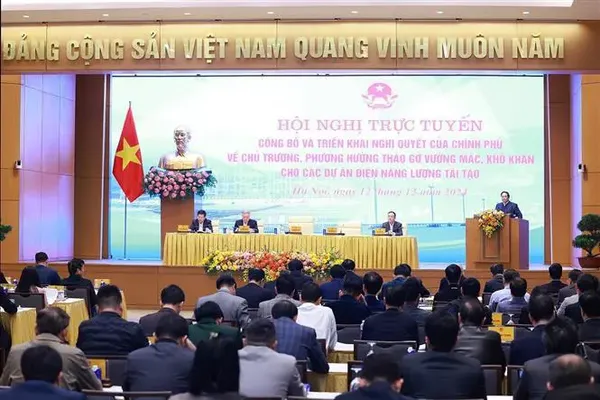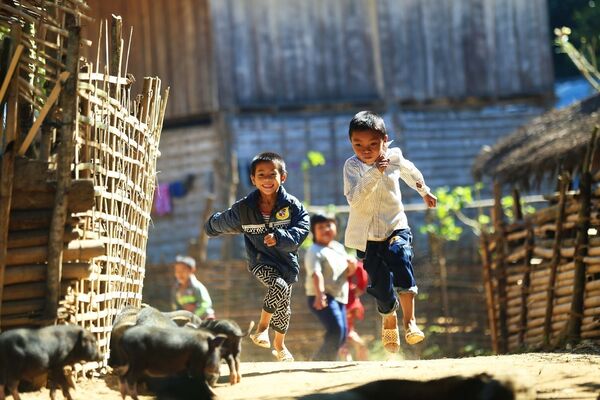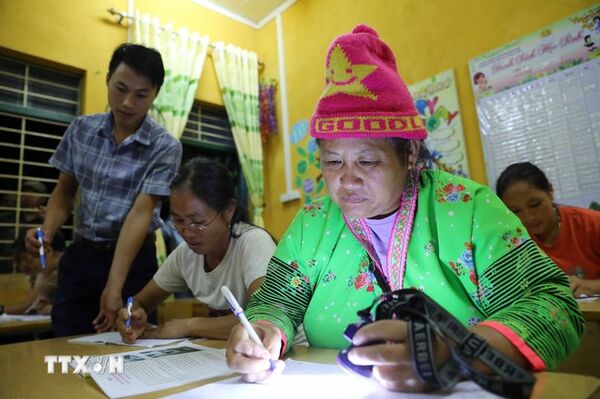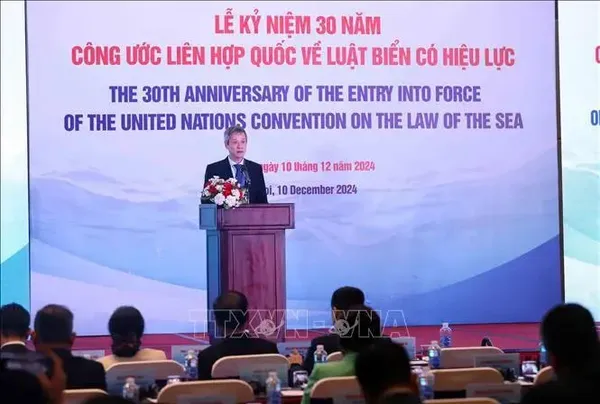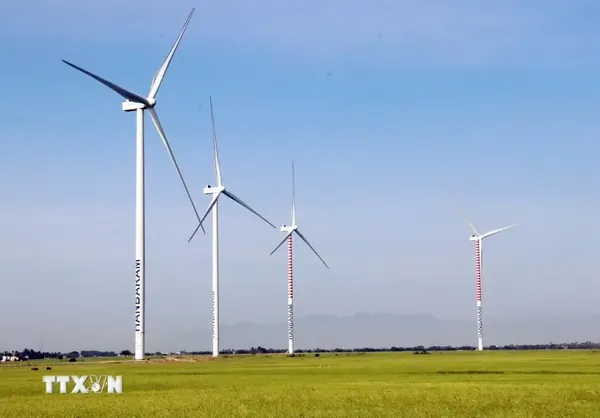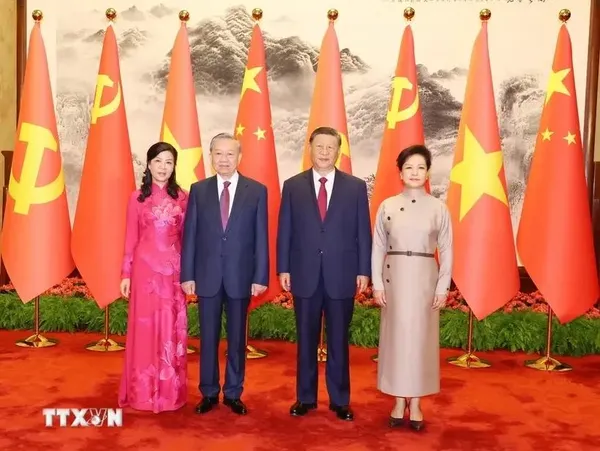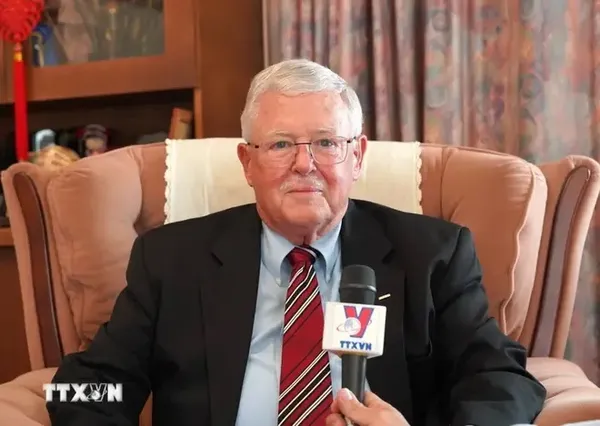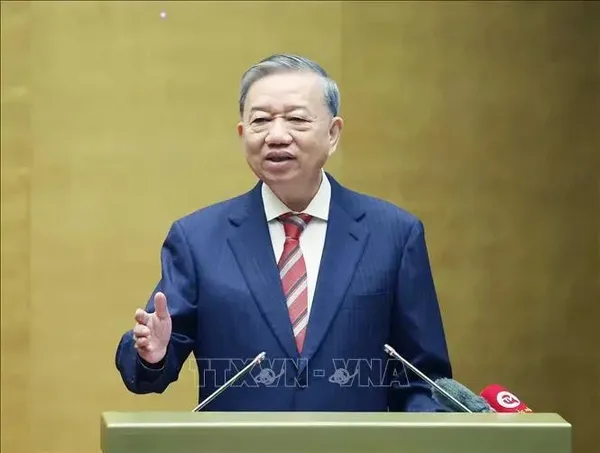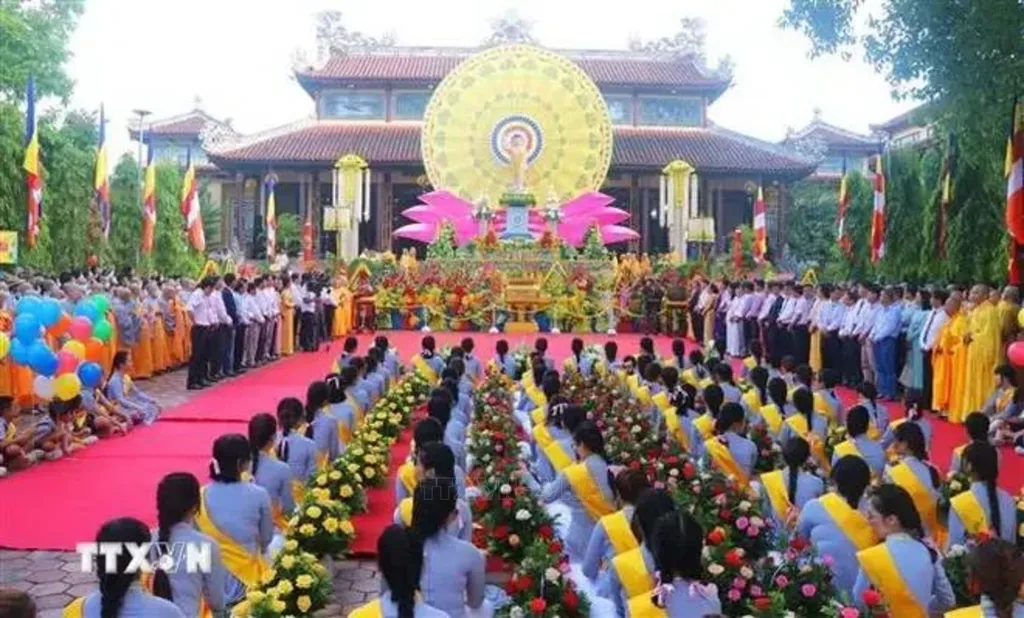 |
| At the celebration of the 2566th Buddha's birthday at Tu Dam Pagoda in the central province of Thua Thien - Hue. (Photo: VNA) |
Hanoi (VNA) – Vietnam’s Constitution clearly stipulates the equal rights of ethnic groups and the right to freedom of belief and religion, while the Party and State have consistently implemented policies that respect and protect these rights, ensuring equality among ethnic groups and providing the best conditions for minorities to preserve their cultural identities and thrive in all areas, considering this the cornerstone of national great unity and sustainable development. Yet, hostile organisations have continuously used various tactics to undermine the great national unity bloc and spread distorted allegations about religious and ethnic issues in Vietnam.
In its recent report entitled "State-Controlled Religion and Religious Freedom in Vietnam", using exaggerative words, the US Commission on International Religious Freedom (USCIRF) once again made baseless accusations, intentionally attempting to negate Vietnam’s achievements in religious freedom and ethnic minority development.
It deliberately ignored the vibrant religious and belief situation in Vietnam, where people across the country practice a wide range of religions and beliefs. The country’s belief and religious life is rich and diverse, with many festivals becoming common festive events of the communities such as Christmas for Catholics, Vesak and Vu Lan for Buddhists, and “Yen Dieu Tri Cung” Festival of Cao Dai followers. Today, Vietnam is home to more than 27 million religious followers, or 27% of the population. The peaceful coexistence and solidarity among religious believers, non-believers, and various ethnic groups are clear evidence of the success of Vietnam’s policies guaranteeing religious and belief freedom.
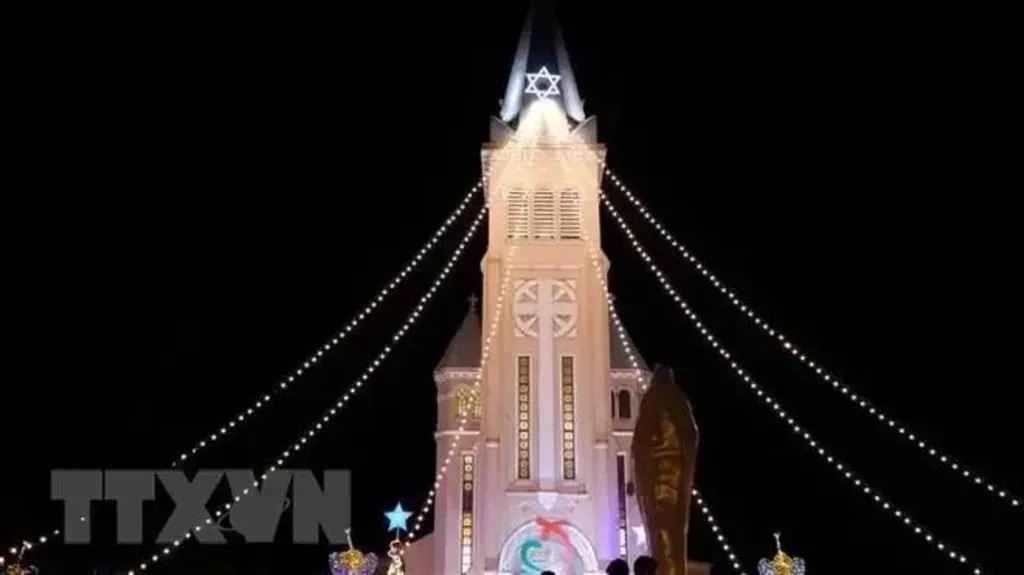 |
| Dalat Main Cathedral dazzles with Christmas decorations (Photo: VNA) |
Vietnam’s progress in ensuring people’s rights to religious and belief freedom has been recognised by the international community, paving the way for the elevation of Vietnam’s relations with the Vatican which has sent a Resident Papal Representative to the country. During a visit to Vietnam in April 2024, Archbishop Paul Richard Gallagher, the Vatican's Secretary for Relations with States, praised Vietnam’s development in all aspects and the positive role of the Catholic Church in the nation's progress.
Speaking to the Vietnam News Agency (VNA)’s resident correspondents in London, British political and historical researcher Kyril Whittaker expressed his admiration for the scale and beauty of Buddhist temples, Catholic churches, and mosques he visited in Vietnam. He emphasised that the widespread presence of these religious establishments as part of the local communities is a clear sign of Vietnam’s commitment to ensuring the right to religious and belief freedom for its people.
Along with religious matters, organisations and media outlets with hostile views against Vietnam, such as the Human Rights Watch (HRW), RFA, and VOA, have falsely claimed that "Vietnam discriminates against ethnic minorities," pointing to the case of Y Quynh Bdap, head of the terrorist group "Montagnards for Justice." Bdap directly orchestrated the deadly attack on June 11, 2023, in the Central Highlands province of Dak Lak. He was sentenced in absentia to 10 years in prison for terrorism by the Dak Lak People’s Court, and the Bangkok Criminal Court ruled to extradite him to Vietnam. Despite a thorough investigation, prosecution and trial, as well as sufficient evidence confirming Bdap’s crimes, hostile forces have still continued to distort the facts, claiming the "government suppresses ethnic minorities" in an effort to incite division and unrest, and harm Vietnam’s great national unity bloc. The HRW, RFA, and VOA ignored the reality that in any country, terrorist criminals who threaten national security and the safety and lives of others must be punished before the law.
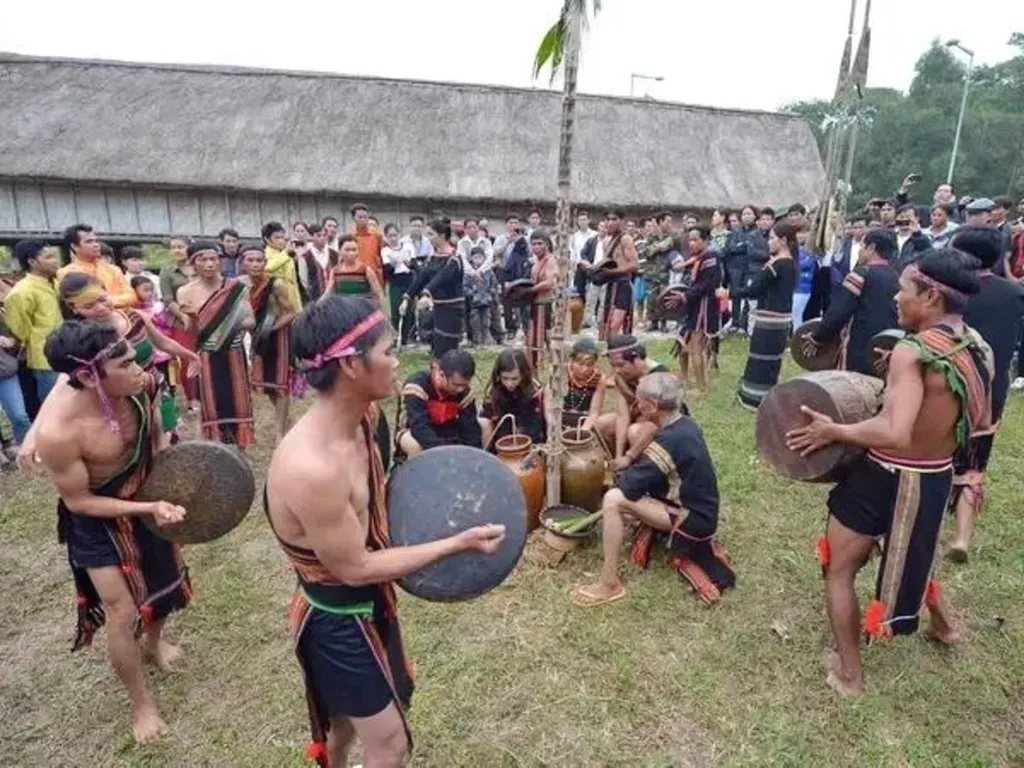 |
| A folk dance of the Ede ethic group at the Vietnamese Ethnic Culture and Tourism Village. (Photo: VNA) |
It is crucial to underline that, with 54 ethnic groups, including 53 minorities, the Vietnamese State has always committed to protecting the rights and improving living conditions of its ethnic minority people, making it a source for national development. In the 2021-2025 period, Vietnam launched the first national programme specifically targeting ethnic minority-inhabited and mountainous regions, demonstrating the Government’s strong commitment to enhancing their position and ensuring their right to development. Over the four consecutive terms of the National Assembly, the proportion of ethnic minority representatives has ranged from 15.6% to 17.27%, with 51 out of 53 ethnic minority groups now represented in the legislature, highlighting their integral role in Vietnam’s political system.These achievements, which are irrefutable and substantial, paint a clear picture of the harmonious development of religions and ethnic groups in Vietnam. They also expose the dangerous tactics of hostile forces, who seek to exploit religious and ethnic issues to cause hatred, incite opposition to the socialist law-governed State, and sabotage the unity and territorial integrity of Vietnam./.
